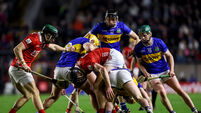Blast at Shia mosque kills at least 79
Suicide attackers wearing women’s robes blew themselves up today in a Shiite mosque in northern Baghdad, killing at least 79 people and wounding more than 164, police said.
It was the second major attack against Shiite targets in as many days.














